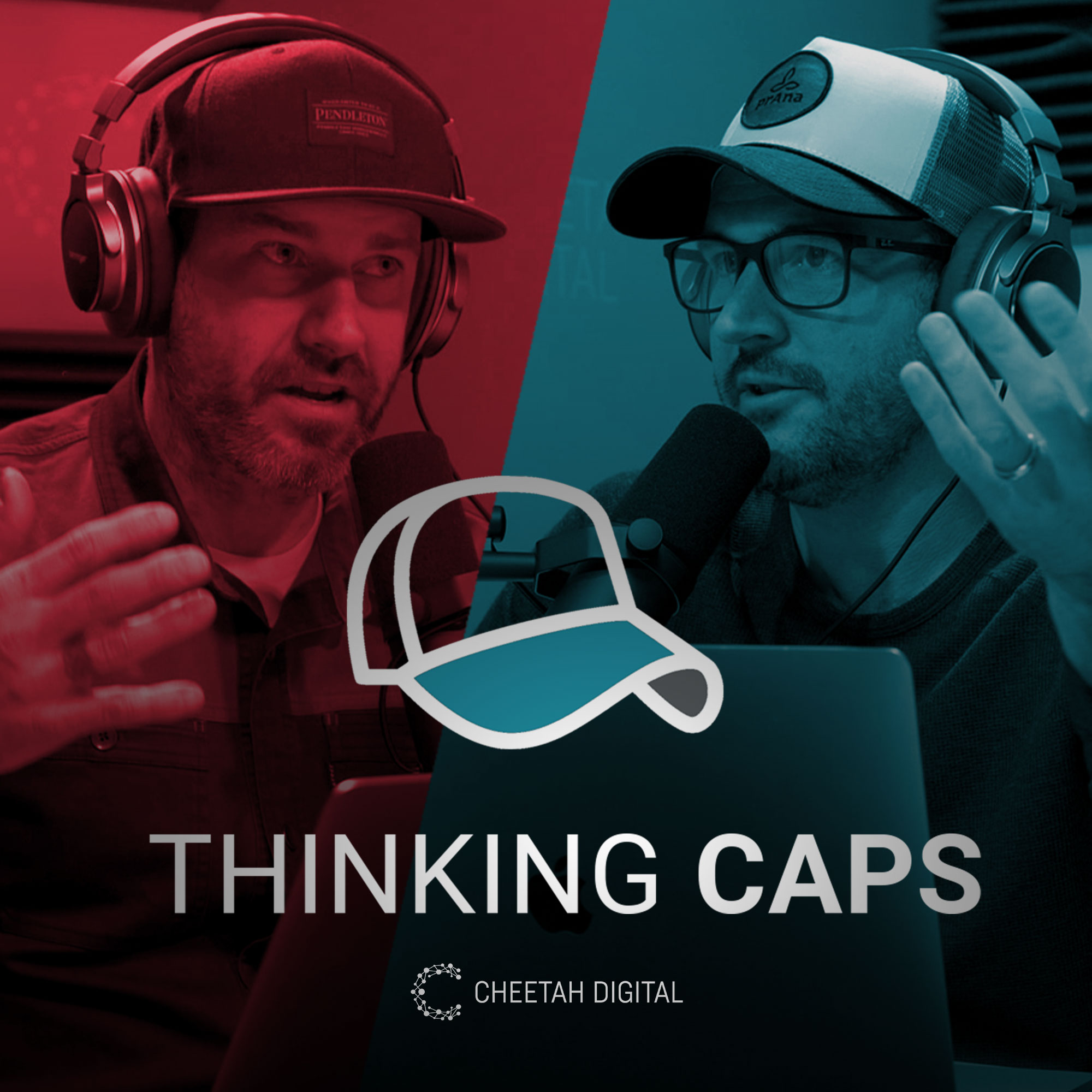
- 0.5
- 1
- 1.25
- 1.5
- 1.75
- 2
WSJ Reports: Apple Ad Revenue Drops, Android Rises, Personalized Ads Eroding.
TIM: Well, guys, the privacy changes that happened in iOS 14 are rolling in, and we know some stats that are showing how consumers are reacting, how ad spends are shifting. The Wall Street Journal has a great article, and I'm going to break it down for you in 10 minutes or less. Stay tuned. Rich, The Wall Street Journal, on July 5th, had a great article with a lot of stats that are showing a dynamic shift because of the fallout from users turning off app tracking in iOS 14.
Rich: We love The Wall Street Journal, they've always got great articles. Tell us, what's the stats and facts that marketers need to know about.
TIM: I'm going to set the stage first, just so anybody who might've been living under a rock, Apple rolled out some privacy changes where consumers in the iOS 14 app, now, every time they open an app that they use, they have to allow or disallow that app to track you as you use your device across the web. That data, that third- party tracking data is used to inform ads. It goes back to Facebooks and Amazons and media published that you might be cruising around on your device. So that's-
Rich: So are consumers saying yay or nay?
TIM: Well, yeah, I have quite a few stats here I want to show you. We knew a little bit about the adoption of this, but in this article, they really talk about the shift in ad spend. I'm going to get ahead of this. There's a bellwether happening here, you need to get ahead of that. First off, they report that Apple's ad revenue dropped and Android revenue rose.
Rich: Makes sense, yep.
TIM: The idea is they have less data coming back from Apple iOS 14 devices so they're shifting to Android.
Rich: And that's getting more expensive, presumably.
TIM: Well, it's definitely getting more expensive. You're going to see a little bit of surge, there's a couple of things. I know you have an article you want to do in a future podcast that's going to go into that. But it's a major shift in ad tracking and it's happening as users turn off this control. It's taken some time for these stats have come in because this has only been about two months, but here are some. I'm going to put these up on screen for you. These are user and iOS stats right now as reported in The Wall Street Journal. 72.8% of smartphones worldwide use the Android operating system and only about 26.4% use iOS. Rich, everything we're going to talk about is very interesting because imagine if Google did what Apple did. The majority of users are on Android phones, but it's Apple who created the disruption. We're already seeing all this. The next stat, which is as of June 22, more than 70% of iOS devices had been upgraded to a version that requires this tracking prompt. 70% of devices out there-
Rich: That's quick.
TIM: It's huge. 70% of Apple users now have the ability to tell an app yes or no to tracking. Now, let's get into it.
Rich: That's 72% of the 26.4% of the mobile operating systems.
TIM: Yeah, so what's it going be? Seven times, roughly 20%, a little less than 20% of all smartphones worldwide are now on iOS 14.
Rich: I guess the iOS 14 ecosystem, that's people that can afford an Apple phone. That's probably the highest priced, highest valued consumers.
TIM: Those are consumers that you want in your database and want doing business with you. There's another stat here, that less than 33% of iOS users opt- in to the tracking. That allows all this flow of data that's been happening. Think about that, less than 33% are opting in. That means nearly 70% of people are saying no, do not track me when I use this app because-
Rich: That's a bellwether of what's to come on any platform when these types of changes get rolled out.
TIM: It's crazy to me that marketers aren't already thinking about, all right, what if Google does this? What if ISPs do this? What if more disruption comes-
Rich: Which is inevitable, going to happen.
TIM: It's going to happen, it's just a matter of time. Now let me share some revenue stats, because there is a story to be told here and I think the story will evolve, it's a living, breathing story, but let's talk about some of the revenue shift that's happening because of this iOS 14 rollout. iOS mobile advertising has fallen by about one- third between June 1 and July 1, 2021, while Android spending rose 10% over the same time.
Rich: Wow, it's really bifurcated the market.
TIM: It's clear that advertisers are not getting back the data they need to use their-
Rich: To justify it.
TIM: Yeah, their retargeting and remarketing on this third- party data, so they're shifting to Android. Also, Android ad prices are about 30% higher than ad prices for iOS users. That's from ad measurement firm Tenjin, Inc. If that holds across the board, you're paying more and you're getting less data. But I'm going to pose this question, and this is where I want you and I to have a real conversation. Let's devil's advocate a little bit of this. What if Google gets on the same train? What if Android does say the same thing," Hey, we're going to let users opt out of ad tracking," et cetera? What would happen? Where would the ad dollars go? Would they go more to Facebook or Google and Amazon? What happens from what we call personalized ads right now based on tracking and third- party cooking, which aren't personalized at all, and is there going to be a dynamic shift to true personalization, the one- to- one? What are your thoughts on any of those topics?
Rich: Yeah, it's interesting because so much of the media buying landscape, particularly at the enterprise level, is controlled by agencies that are working for the CMOs. There's going to be some friction in the process of how these dollars get meted out, because the media agencies are going to want to put the ad dollars to other media ads opportunities because they're going to want their margins.
TIM: Totally.
Rich: So they're not going to want to do anything, which I think is a shame in my opinion, because I do think what we need is actually some more creative thinking at the strategy level of, all right, well, what does all of this mean longterm, what do I need to do now for my brand to be thriving in three to five years time? I think what we're going to see, unfortunately, in the next year is media agencies driving more bandaid fixing, like," Let's put a plaster on it. Let's move from iOS to Android." Actually, what we need to be is stepping back and going," Well, hold on a minute. We need to be building out those first- party relationships. What should my spend be best to drive the outcome?"
TIM: Totally.
Rich: I would be say, great, still spend your ad dollars, but stand up your loyalty program pretty bloody quick and spend money on Facebook and these other platforms to get people off those channels-
TIM: Into your own.
Rich: ...into your loyalty program, where you own that first- party relationship. That's the discussion that should be happening. Whether we're going to get that, because of the way media agencies control media spend at enterprise customers, I don't know.
TIM: The other thing there is Google just rolled back. All right, death of the cookies pushed off to 2023. I think a lot of marketers are doing this, like," Oh, cool."
Rich: "I'll be on my next job by then."
TIM: Yeah, exactly." I just got another 12 months. I don't have to deal with this for another year." That is a foolish mentality.
Rich: Yeah. I mean, look, look. To be fair, we do know that there are a load of really smart marketers that aren't taking that approach.
TIM: Yeah, they're getting ahead of it. You know, that they're getting ahead of it.
Rich: Their people are getting ahead of it. There's people that have been getting ahead of it for two, three years now. They've seen the writing on the wall. But I do think you're right, that the market will be split between those that are actually getting ahead of it and putting longterm strategy in and those that are taking this opportunity of it now being the end of 2023 to slow down on actually exploring the longterm opportunities around strategy that they're going to have to do at some point, their brand or their retailer are going to have to do at some point.
TIM: Please do not be that latter marketer, be the one that's proactive here. If you don't want to get that from us and our advice, go get the 2021 Digital Ad Ecosystem report from IAB and they'll tell you, it could be fatal if you do not get ahead of these things. Scott Cunningham, privacy expert, who is paid by a lot of really good smart companies to get ahead of this stuff has said it, do not rest on your laurels. I do want to share one other quote, which I thought this was very interesting and telling. Facebook has an interesting quote, where," Third- party data tends to be unreliable and not representative of our business." Okay, I agree with that.
Rich: Yep.
TIM: "While we expect iOS 14. 5 to be a headwind for the remaining of the year, the impact on our business will be manageable." I'm going to interject here. I think it's going to be manageable because of what you said, media agencies are just going to push brands' dollars wherever they need to. Back into the quote." What's most concerning is the impact to the smaller developers and businesses who rely on personalized advertising." The cat's out of the bag. Here's what I think Facebook saying, by the way, that's an unnamed Facebook spokesperson and it's in several different articles, we only a minute here but I think this is incredibly foolish and ill- worded, in my opinion, from Facebook because the consumer is demanding more personalization, less flocks, less segmentation, more personalization across the full journey, all the way across loyalty, et cetera.
Rich: But personalization where the consumer knows that the data is being used to drive the personalization, has been freely given by them to the brand in return for better services or better content.
TIM: Facebook, you're going to eat those words. You're talking about it in context of the small business, the large businesses are going to have the same problem. It's going to be a problem. Anyway, we're at time. You have another great article. Our next episode is going to be great, it's going to dig into this from a whole different lens.
Rich: For direct- to- consumer brands. What does it mean for them?
TIM: Sorry, slight change.
Rich: Cool.
TIM: All right, see you next time.
Today's Host

Tim Glomb
The Wall Street Journal has some stats proving Apple's privacy features rolling out to consumers is creating a shift in advertising. Ads targeting Apple devices is dropping (because of the targeting capabilities) but Android rates are skyrocketing. What the real story might be though is the shift in ability for marketers to personalize ads at scale. And what if other media companies follow suit restricting ad targeting? We dig in and share the stats from this article.